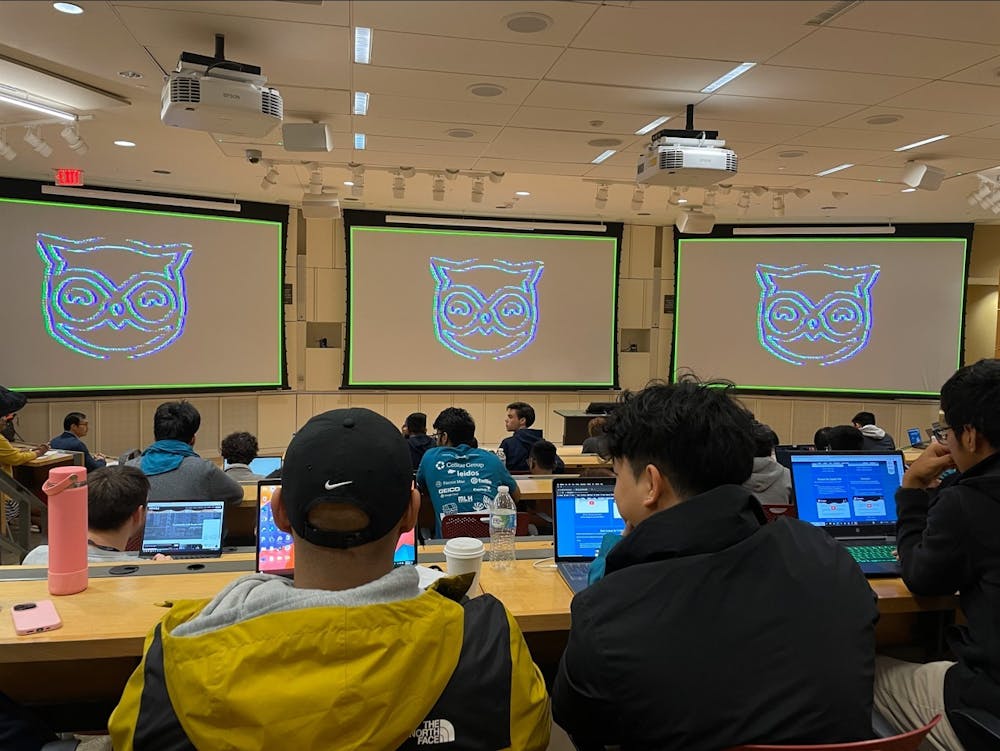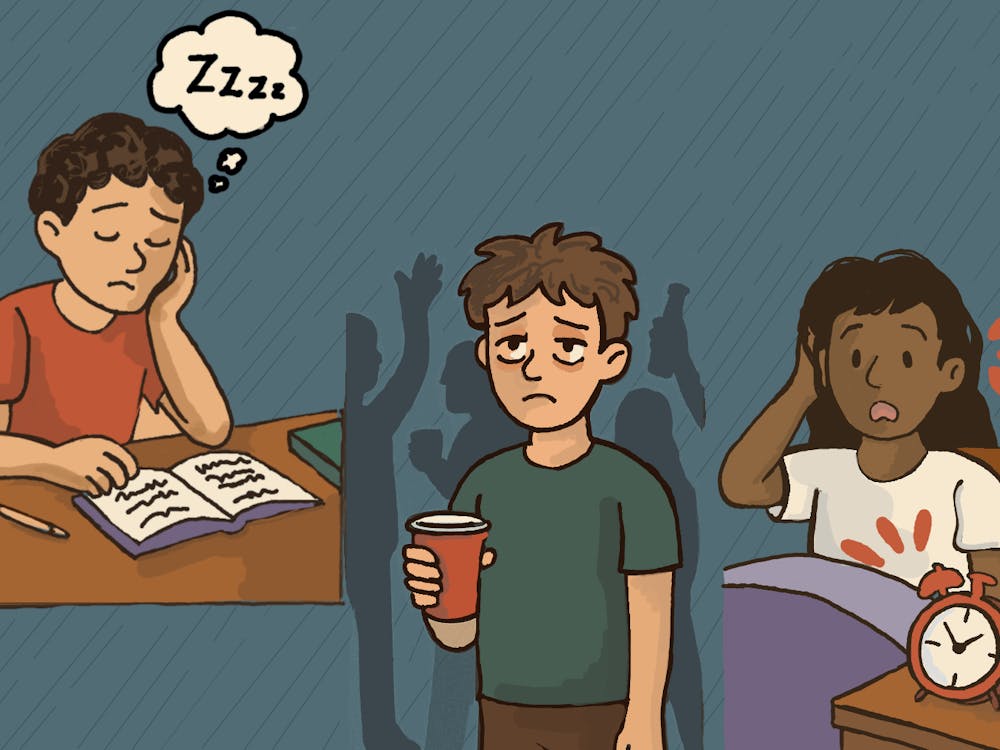Despite the drizzle early Saturday morning, student hackers lined up outside Thornton Hall with their computers, hardware and pillows, waiting for HooHacks to kick off. Trickling down the staircase of Thorton, attendees chatted with each other in anticipation of the event, which was held in person for the first time since 2019.
Co-presidents of the HooHacks organizing team Amrit Gorle and Jade Heilemann said that they looked forward to seeing HooHacks 2023 as not just a hackathon, but as a diverse community in action, coming together to solve problems from a variety of academic backgrounds.
“I'm just really excited to see the whole culture of students because we’re having so many people [at HooHacks],” Gorle said.
HooHacks is a 24-hour coding competition organized by University students that aims to bring students together for a weekend to learn programming, meet people and develop a project to solve real-life problems using different technologies. By creating the most effective program under any of the seven categories offered this year — such as arts and gaming, finance and health — students can win prizes up to $500 and more.
The wide reach of HooHacks provides the unique opportunity for interested students to learn alongside like-minded individuals from various universities as well as their own. As one of the 50 biggest collegiate hackathons in the U.S., HooHacks 2023 attracted over 1,000 attendees this year. Hackers were students at University and other colleges across the country — ranging from Universities in Northern Virginia to Indiana.
“Trying to further the knowledge [of hacking] and getting into the friendly competition spirit of it…that will be really cool,” Heilemann said.
The sense of community was shared across student hackers — including a junior at George Mason University, Dhruv Gramopadhye. With three years of experience at HooHacks, Gramopadhye said that people were his favorite part of the event. Attendees can connect with students across years and universities, learning with and from each other to solve various challenges.
Gramopadhye teamed with three first-years from UNC-Chapel Hill whom he never met before, but he was confident about the opportunity to connect with a different group of students.
“You would think because it's a competition, people are gonna try to hide what they're working on,” Gramopadhye said. “That might be true at the very beginning of the competition, but…people are really excited about what they want to build and they just can't help [but share their ideas].”
Besides the challenge itself, resources like workshops about new technology, project development tactics and small programs from sponsor companies like Leidos, Twilio and Forge were the unique characteristics of HooHacks that ties the students to its greater communities. Following the upheaval of artificial intelligence like ChatGPT, workshops like “Using ChatGPT in your Projects” and “Explainable AI” not only introduced students to these new inventions but also helped them think about their programming skills in a wider, real-world context.
Second-year Engineering student Harshal Nallapareddy not only used his new knowledge learned from the Twilio SMS service platform after talking with the sponsor in his project, but he also incorporated his newfound knowledge from the workshops.
“The main thing was learning how to use the ChatGPT API,” Nallapareddy said. “We're actually using the ChatGPT API in our project for getting a user response and running it through the ChatGPT service and spitting it back to the user.”
Fourth-year Commerce student Victoria “Vix” Clotet came to HooHacks specifically to learn from these workshops. Clotet's favorite was Dean Garland’s “What You Learn Surfing the Waves of Innovation”.
“It was [about] staying on top of the wave for new technology like Blockchain, ChatGPT and AI,” Clotet said. “[Dean Garland also talked about] his story when he was working at startups and it was so cool, because he was the mentor of Sam Altman, which is the person who created Chat GPT. So that was awesome… I was getting to meet this man!”
Workshops at HooHacks are not one-way conversations. Instead, they are a connecting space that allow speakers to exchange ideas with any participants. Brian Wright, assistant professor and director of undergraduate programs at the School of Data Science, led one of the workshops called “Explainable AI,” which talks about using machine learning to mathematically understand ethics. Professor Wright said that HooHacks is a great platform to stimulate thinking about the future of AI, and where topics like data justice and ethics come in.
“HooHacks is a great platform for us to start exposing the school … and then also to start talking about some of these [topics like data justice] that we're thinking about in the school and to get them out into the public conversation, HooHacks is such a nice community — not just U.Va, but a community of students broadly,” Wright said.
HooHacks strives to be a place for students to learn and develop their programming skills, making software development both accessible and enjoyable through healthy team competition. As the first in-person HooHacks since 2019, HooHacks 2023 brought the community tighter together since people were able to physically meet and collaborate in the Engineering School on Grounds during the 24 hour coding challenge.
In the future, Heilmann hopes HooHacks can continue to grow, attracting even more people from across the country.
“I would love to see HooHacks be like, top 10 largest Hackathons, top five, or [even] number one would be awesome,” Heilmann said. “But that might be [a] few years down the road.”







